What's next in the dispute between Colombia and Peru over Santa Rosa Island in the Amazon after President Gustavo Petro's statement in Leticia?

Diplomatic tensions between Colombia and Peru over sovereignty over Santa Rosa Island, which formed in the middle of the Amazon River, were the focus of President Gustavo Petro's speech during the commemoration of the 206th anniversary of the Battle of Boyacá , when the liberation army defeated the Spanish.
The president, who recounted the territory Colombia has lost throughout history—he said the nation was focused on killing each other and not defending its land—declared, as head of state, that Colombia does not recognize Peru's sovereignty over that island and called for respect for the 1934 Rio de Janeiro Treaty , which established that if new islands appeared due to the change in the course of the Amazon River, the allocation would have to be negotiated between the two countries. That process, President Petro insisted, has not been carried out, so he accused Lima of violating the treaty that ended the 1932 war.
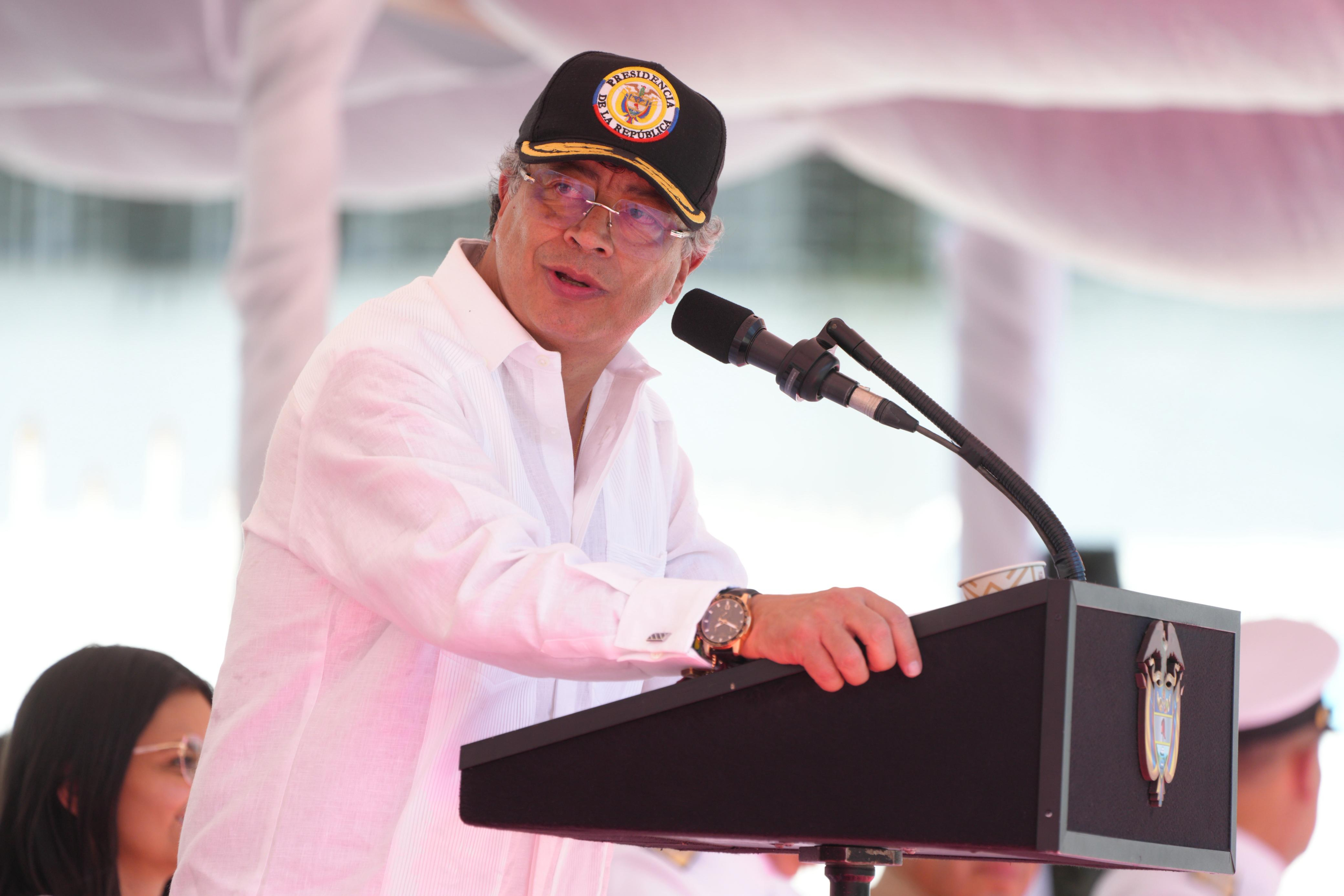
Gustavo Petro, President of Colombia Photo: Presidency
"What will Leticia do if it doesn't have a river? That destiny isn't the one outlined in the 1934 treaty. The treaty hasn't been fulfilled. Peru violated it," he asserted. He also questioned the fact that local authorities have even been proclaimed in Santa Rosa and argued that the borders between the two countries are marked by the deepest line of the river, which has been receding from Leticia.
"The treaty stated that the border is the line drawn with the deepest points of the river. The deepest line of the riverbed today is not near Leticia; it's farther south, " the President asserted.
But throughout his speech, the president, far from confrontation, asked Peru to sit down and negotiate sovereignty over the island , arguing that it doesn't matter who inhabits it, but rather saving the jungle and confronting the mafias.
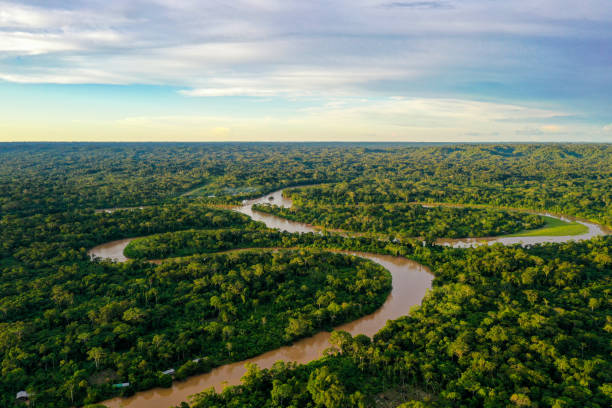
Amazon River Photo: iStock
"Peruvians are not the enemies of the rainforest, nor are they Brazilians, Venezuelans, or Ecuadorians. The society that lives in the rainforest must be the rainforest's main ally," he said.
He also called on the country to overcome internal divisions and defend common goals. "We've lost territory the more we kill each other. Today, there are also national divisions that speak of killing each other, when we should be defending the nation," he said.
The State of the Union declaration: there will be a summit in Lima to address the situation 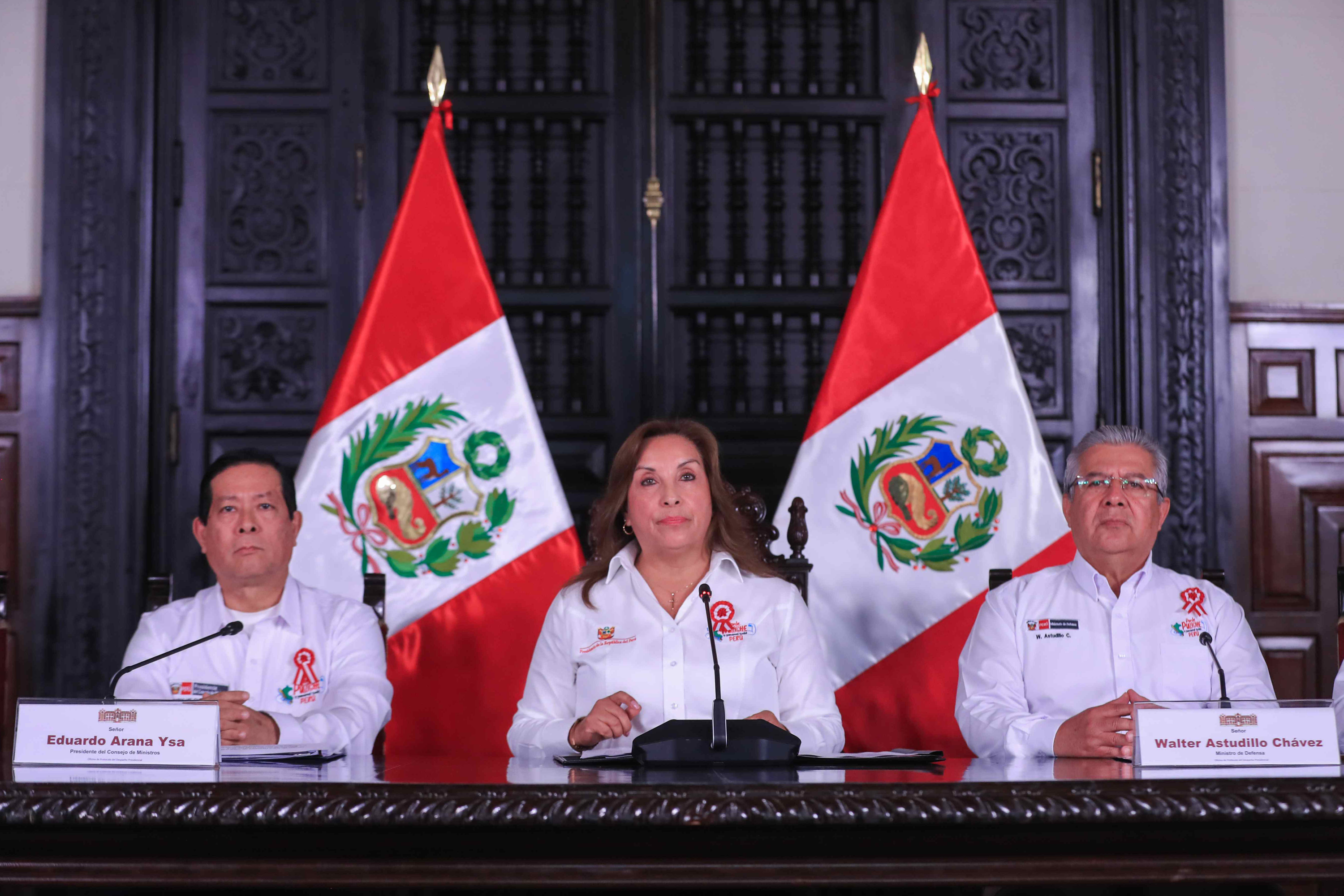
Dina Boluarte, President of Peru. Photo: EFE
At the end of his speech, in which he also spoke about the peasant strike in Boyacá, acknowledging that this was one of the reasons for moving the commemoration of the Battle of Boyacá to Leticia, President Petro read a state declaration outlining Colombia's position on the border dispute.
The document clearly denies Peru's sovereignty over the island and the authorities proclaimed therein. "The so-called Santa Rosa Island, along with other fluvial formations that emerged along the course of the Amazon River after the only binational assignment of islands between the Republic of Colombia and the Republic of Peru, carried out in 1929, have not been assigned to either republic," reads the first point of the declaration.
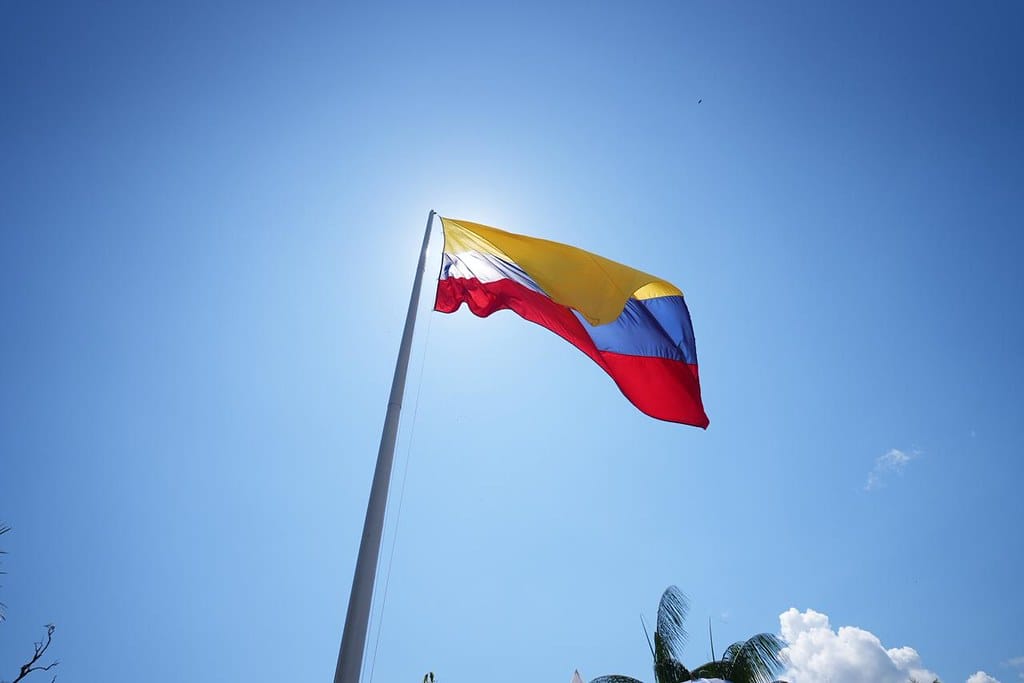
Colombian flag in Leticia. Photo: Presidency
The second point reiterates its rejection of the promulgation of the district of Santa Rosa by the Peruvian Congress. "The law creating the so-called District of Santa Rosa de Loreto is a unilateral act by Peru, which disregards binational legal instruments by incorporating an unassigned island and establishing an international boundary between both States, violating the principle of the primacy of international law over domestic law." Colombia does not recognize Peru's sovereignty over the so-called island of Santa Rosa and disregards the de facto authorities imposed in the area," it reads.
Furthermore, it is indicated that the "unilateral" act of requiring vessels to register on the so-called Santa Rosa Island is " unacceptable and violates " the spirit of free navigability on the Amazon River, contemplated in the Additional Act of the Rio de Janeiro Protocol of 1934, especially in its Article 12.
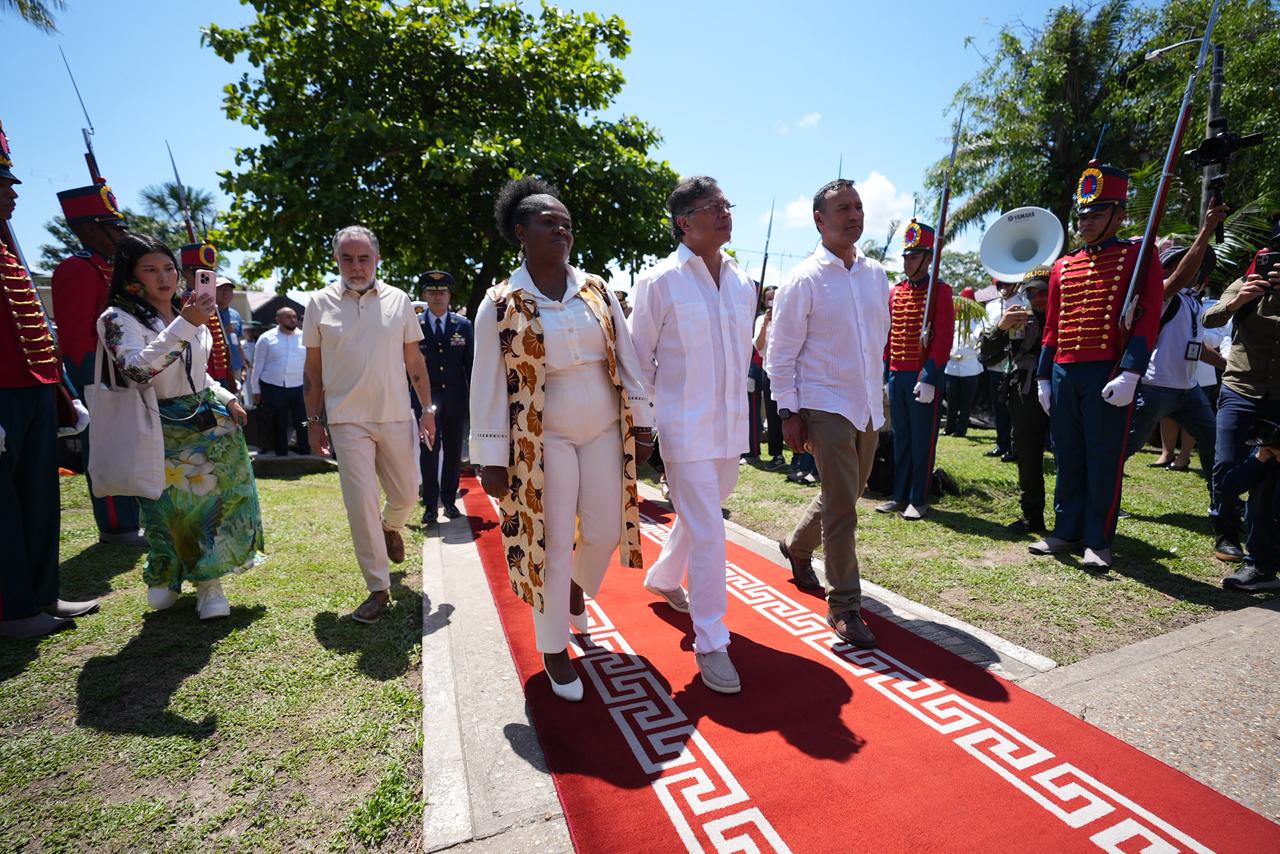
Vice President Francia Márquez and President Gustavo Petro. Photo: Courtesy/Presidency
However, it was announced that an invitation had been received from the Peruvian government to participate in the reactivation of the Permanent Joint Commission for the Inspection of the Colombian-Peruvian Border (Comperif) on September 11 and 12 in Lima, in order to resolve the conflict . If an agreement is not reached, Colombia would resort to international bodies.
"Different governments, including this one, let things slide, and Peru gradually began to exercise sovereignty until it reached the current situation. Several meetings were held in which Peru refused to reach an agreement ," former Foreign Minister Julio Londoño Paredes explained to this newspaper.
Political analyst Jairo Libreros emphasized that yesterday the doors were opened to finding a diplomatic solution to the territorial dispute. "I believe Colombia has a clearly defined legal basis in the Rio de Janeiro Protocol established in 1934: no agreement has been reached to define how sovereignty will be managed and administered in this situation," he stated.
The President of Congress, Lidio García, agreed that Colombia's sovereignty is non-negotiable. "We will safeguard every inch of our homeland, an ancestral legacy that we will preserve for future generations. Colombia is united in this cause."
MATEO GARCÍA AND JUAN PABLO PENAGOS
eltiempo





